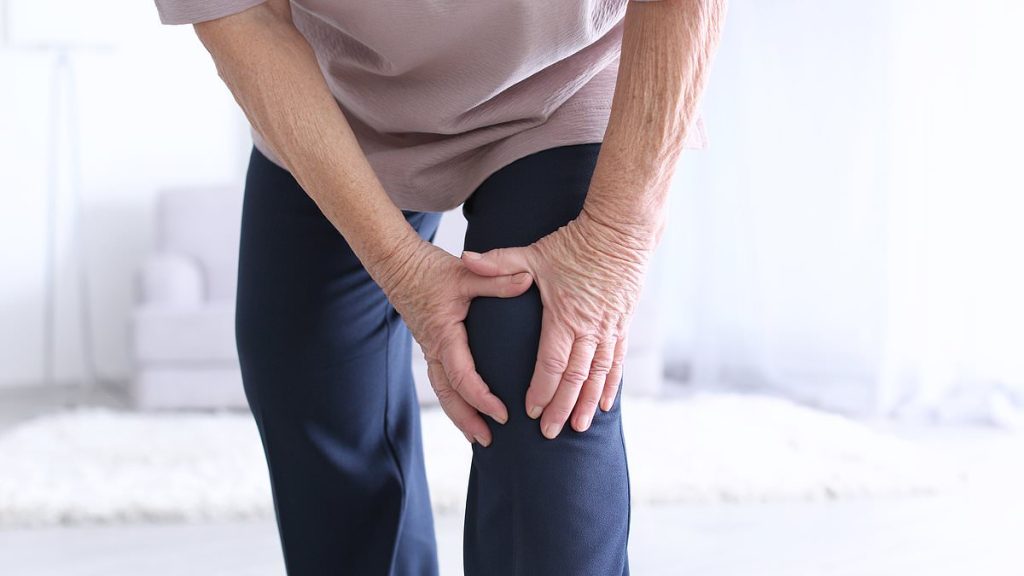Sean Wooler, Health Editor, Daily Mail
Updated July 29, 2024 22:00, July 30, 2024 01:00
Millions of people Osteoarthritis Knee pain may be improved by a drug already used to treat autoimmune diseases, according to a study.
The researchers found that methotrexate reduced both the pain and stiffness associated with the disease, a breakthrough that offers “real hope” for patients.
Around 5.4 million people in the UK live with osteoarthritis of the knee, which occurs when the body can no longer keep the joint healthy and pain-free.
Current pain relief options are limited, short-term and rarely effective.
A survey carried out by the charity Versus Arthritis found that a third of people with osteoarthritis experience severe pain every day.
Doctors from the University of Leeds and Leeds Teaching Hospitals NHS Trust recruited 155 patients with osteoarthritis of the knee that was not responding to current drug treatments.
The patients were split into two groups: half received a placebo and the other half received methotrexate tablets once a week for 12 months.
The results, published in the medical journal Annals of Internal Medicine, showed that people who took methotrexate experienced less pain and stiffness after six months.
The drug works by suppressing the activity of the immune system.
“There is an urgent need for treatments to relieve the pain of osteoarthritis,” said researcher Professor Philip Conaghan.
“Although there have been many trials exploring potential new treatments, most remain unproven, leaving patients with osteoarthritis with few options.”
Click here to resize this module
“We are therefore very excited by our findings, which suggest that methotrexate may be a potential new treatment.”
“Our study demonstrates that methotrexate, a drug already widely used for rheumatoid arthritis, may relieve osteoarthritis pain and also gives us clues as to which subset of patients with high levels of inflammation in their blood may benefit from this treatment.”
Exercise, weight management and physical therapy are recommended for managing osteoarthritis, but the levels of pain and stiffness experienced by patients are so high that additional therapies, such as medications, are usually required, which have limitations.
Joint replacement surgery may be considered as long-term relief for patients with very advanced osteoarthritis, but NHS waiting lists are often long and patients can suffer from pain for years.
Dr Sarah Kingsbury, who worked on the study, said: “This study holds great promise for a new treatment for osteoarthritis, but there are still questions that need to be answered before methotrexate can be considered for widespread use.
“Our findings suggest that some people may derive greater benefit from methotrexate than others, so our next steps are to understand this better, to identify the optimal dose of methotrexate to use, and to consider the cost-effectiveness of methotrexate as a treatment for osteoarthritis.”
The impact of arthritis can be devastating, affecting your ability to work, care for your family, move around without pain, and live independently.
Lucy Donaldson, director of research and health information at Versus Arthritis, which funded the study, hailed the trial results as a promising breakthrough.
She said: “Osteoarthritis research has come a long way in our lifetimes, but there is still a long way to go.”
“These findings are very exciting as new ways to treat osteoarthritis pain are urgently needed.”
“These findings could offer real hope to millions of people suffering from knee osteoarthritis.”
“Against the backdrop of unacceptably long waiting lists for joint replacement surgery, this study highlights the value of research and why arthritis needs higher priority and investment.”
Click here to resize this module
Roger Van Courter, 73, a military veteran from Shropshire, suffers from a number of conditions, including osteoarthritis in his hands, hips and knees.
He said: “Osteoarthritis is my main problem. It’s very painful and I’ve been very healthy but all my joints are deteriorating.”
“I’ve had knee problems for a long time. In my 40s I was diagnosed with osteoarthritis after completing the Great North Run and feeling pain in my knees.”
“I did a lot of triathlons, mountain climbing, marathons, things like that.
“Right now, even walking feels a bit weird on my legs.
“When you’re at home alone and you can’t distract yourself from the pain and suffering, it can be really tough and it can affect your mental health.”
“There needs to be a better treatment for osteoarthritis. It’s distressing when painkillers don’t provide any relief from the pain in my knees, wrists, fingers and toes.”
“Millions of us are crying out for better medicine so we can get back to enjoying the things we love, so news like this gives people like me real hope for the future.”


